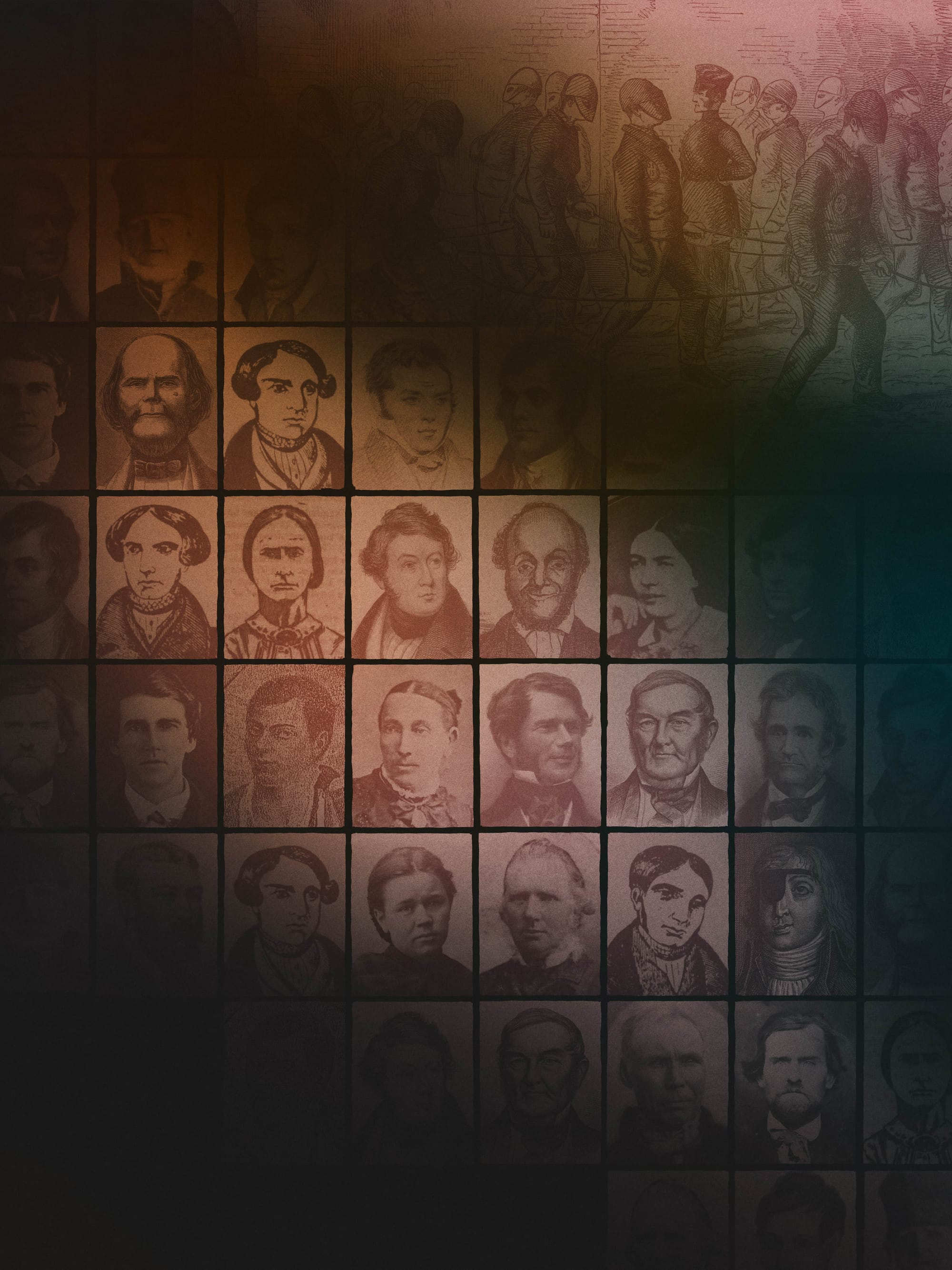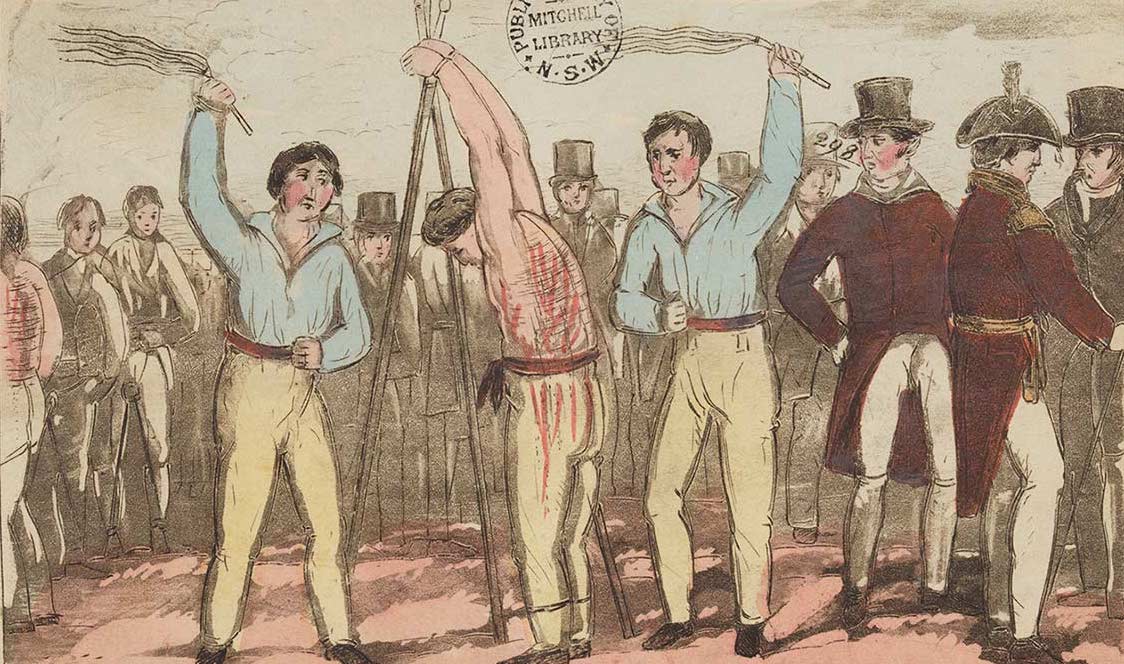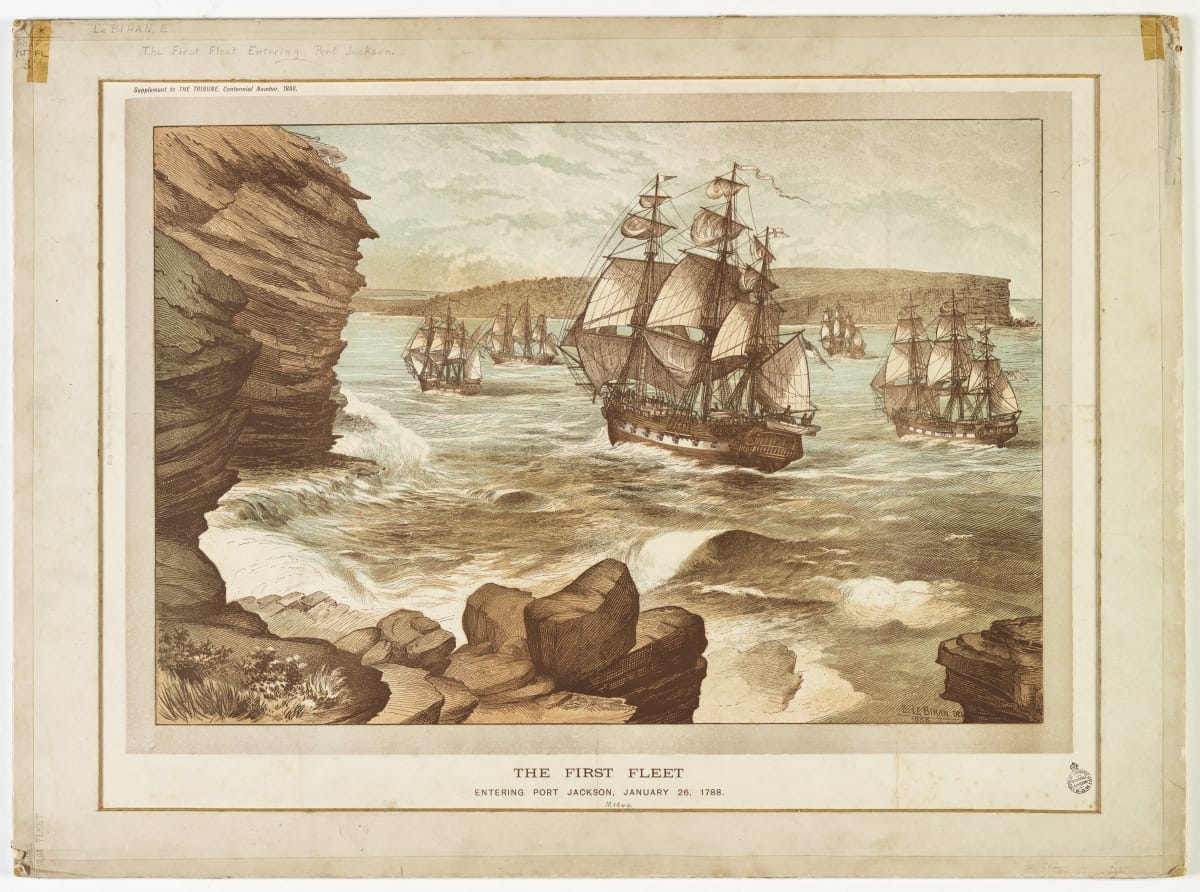
By forging strategic partnerships and embracing innovative approaches to historical storytelling, Associate Professor Tony Moore’s ARC Linkage project, Conviction Politics: A digital investigation of the convict routes of Australian democracy, has brought an invigorated national narrative to content-hungry audiences with impressive success.
While the history of Australian democracy has long moved seamlessly from the Eureka Rebellion in 1854 to Federation in 1901, Conviction Politics uses newly-digitised convict records to reveal the untold impact of transported rebels, industrial protesters and radical agitators on the political direction of the colonies.
Australia became the forced home of more than 160,000 convicts, with a further 3600 political prisoners transported for protest, anti-colonial revolution, and agitating for democratic reform, media freedom, and unionism.
Globally-scattered archives on convict transportation captured convicts’ information and the minutiae of their conduct for rapid identification and surveillance, effectively erecting a “data panopticon” – or a data prison – in the Australian colonies.
View an immersive, interactive story: From chains to change: Bringing to life the convict origins of Australia’s labour movement
“British colonists weren’t just imprisoning people in a jail or in the wilds of Australia, they were also capturing them with data during the beginning of the computing age,” says Associate Professor Moore.
This data can now be digitised, linked and searched, with a different story of convict transportation emerging through machine learning.
Through this process, Associate Professor Moore and his team – including Monash SensiLab’s Dr Monika Schwarz and Professor Jon McCormack – uncovered collective patterns of resistance on a massive scale, including strikes, go-slows, refusals to eat, sabotage, group absconding, and the formation of union-like combinations.
Somewhat ironically, archival data also individualised convicts by emphasising criminality to justify the exploitation of unfree labour.
“We located extraordinary individual stories within data trends,” says Associate Professor Moore. “Together, these individual and collective stories of resistance challenge the idea of convicts as petty criminals lacking agency, liberating them from the atomising records that imprisoned them.”
Convict resistance in the 1830s climaxed in a level of industrial dispute that rivalled the great strikes of the 1890s, greatly influencing the ultimate abolition of convict transportation to eastern Australia.

Breaking free: Radical resistance to research limitations
So, how can a ragtag bunch of resistors, rebels and revolutionaries capture the hearts of new generations?
In his mission to relay their stories to a broad audience, Associate Professor Moore extended Conviction Politics’ reach well beyond the parameters of traditional humanities research outputs.
“This story is bigger than a just book, bigger than just a documentary. We had to adopt an enterprising approach to its telling or risk losing much of the complexity of Australia’s convict history.”
Working with seven universities, 11 partners and eight collaborators – spanning universities, archives, museums, trade unions, a creative digital media company, and a law firm – Associate Professor Moore and his team transformed their research into an online transmedia hub featuring 100 micro-documentaries, as well as data visualisations, podcasts, rich image archives, written articles, and original songs.
Described by Associate Professor Moore as a “Netflix for convict politics”, the hub’s transmedia approach allows users to tailor the direction and depth of their engagement, catering to everyone from school students and teachers, to trade union activists, to amateur historians exploring their family tree.
In addition to the hub, Conviction Politics has generated a suite of music written and performed by Australian artists, a book titled Unfree Workers, and – most recently – UNSHACKLED: The True Convict Story, a groundbreaking immersive exhibition currently on display at the Tasmanian Museum and Gallery (TMAG) until 28 July, with future stops planned around Australia, and in the United Kingdom and Ireland.
Co-created with project partners Roar Film and TMAG, UNSHACKLED continues Conviction Politics’ work to push the boundaries of conventional academic mediums by bringing convict stories to life through animated portraits, sensitive technology, augmented reality, short documentaries, rare solid objects, and original soundscapes, with visitors navigating the experience using a QR code-enabled smartphone app.
Finding fellow rebels: An argument for partners in crime
The scope and reach of Conviction Politics was realised through the shaping and leveraging of synergistic partnerships.
“In my research, I find it vital to build in outputs beyond the traditional books and articles – like short-form documentaries, online transmedia hubs and exhibitions – to generate public-facing impact,” said Associate Professor Moore.
“While it may be easier to get a book assessed as a research output, we’re finding that partners today won’t invest in collaborative projects for a book alone.
“Our partners have invested in Conviction Politics both because they believe in our work, and because we’re generating public-facing resources that help them with their goals, including transforming how their communities understand our past in order to improve it in practical ways today.”
When it comes to engaging with partners, Associate Professor Moore’s greatest advice to his fellow academics is to come prepared.
“You have to invest in knowing your partners, including knowing how your project aligns with their vision statements and their goals, and meeting with them in person. Spending real time with your partners ensures you can feel confident in each other – it’s important to build a genuine relationship.”

In particular, Associate Professor Moore credits creative partner Roar Film with maximising Conviction Politics’ outputs and impact.
Having similarly collaborated on a previous project, he brought Roar’s creative director, Steve Thomas, on board as his partner investigator on both Conviction Politics and a new ARC Linkage project, Comedy Country, enabling the duo to continue their work to use media practice as a form of research, as well as a way to communicate discoveries.
Conviction Politics’ partnership with the New South Wales Teachers Federation similarly demonstrates the impact of bringing research projects to aligned partner organisations.
Associate Professor Moore’s team worked with the union’s Centre for Professional Learning to create an in-service training course called “Teaching Conviction Politics” for teachers looking to utilise the transmedia hub.
Further work is underway with the Tasmanian and NSW education departments to develop Conviction Politics teaching resources for their public-school history curricula – creating the space for the project to make a real impression on how future generations understand Australia’s convict history.
For Associate Professor Moore, adopting an enterprising approach to research generates the potential for meaningful change.
“Australia’s true convict story is necessary to understand the persistence of colonial scars today,” he says.
“Our democracy remains imperfect, and there’s much still to achieve. The story of political impact in a place of exile draws a different radical line with our past to empower the present.”
Explore Monash’s Enterprise and Engagement website to discover how Monash University supports researchers seeking to heighten their enterprising capabilities.





